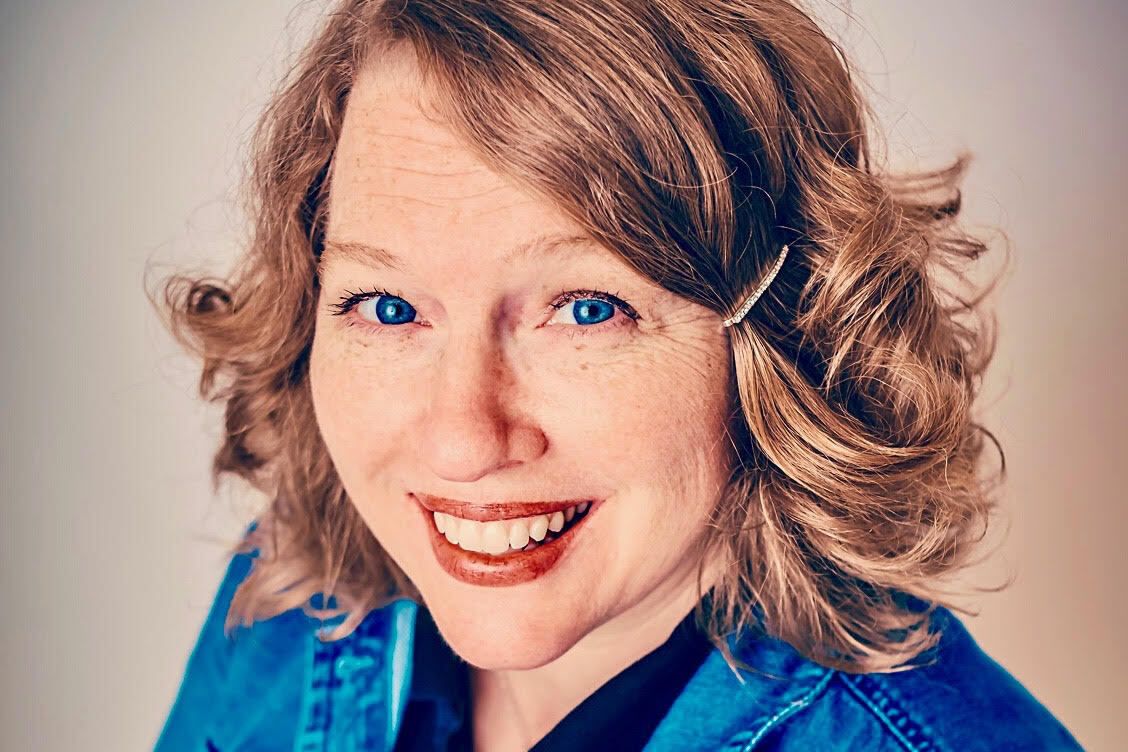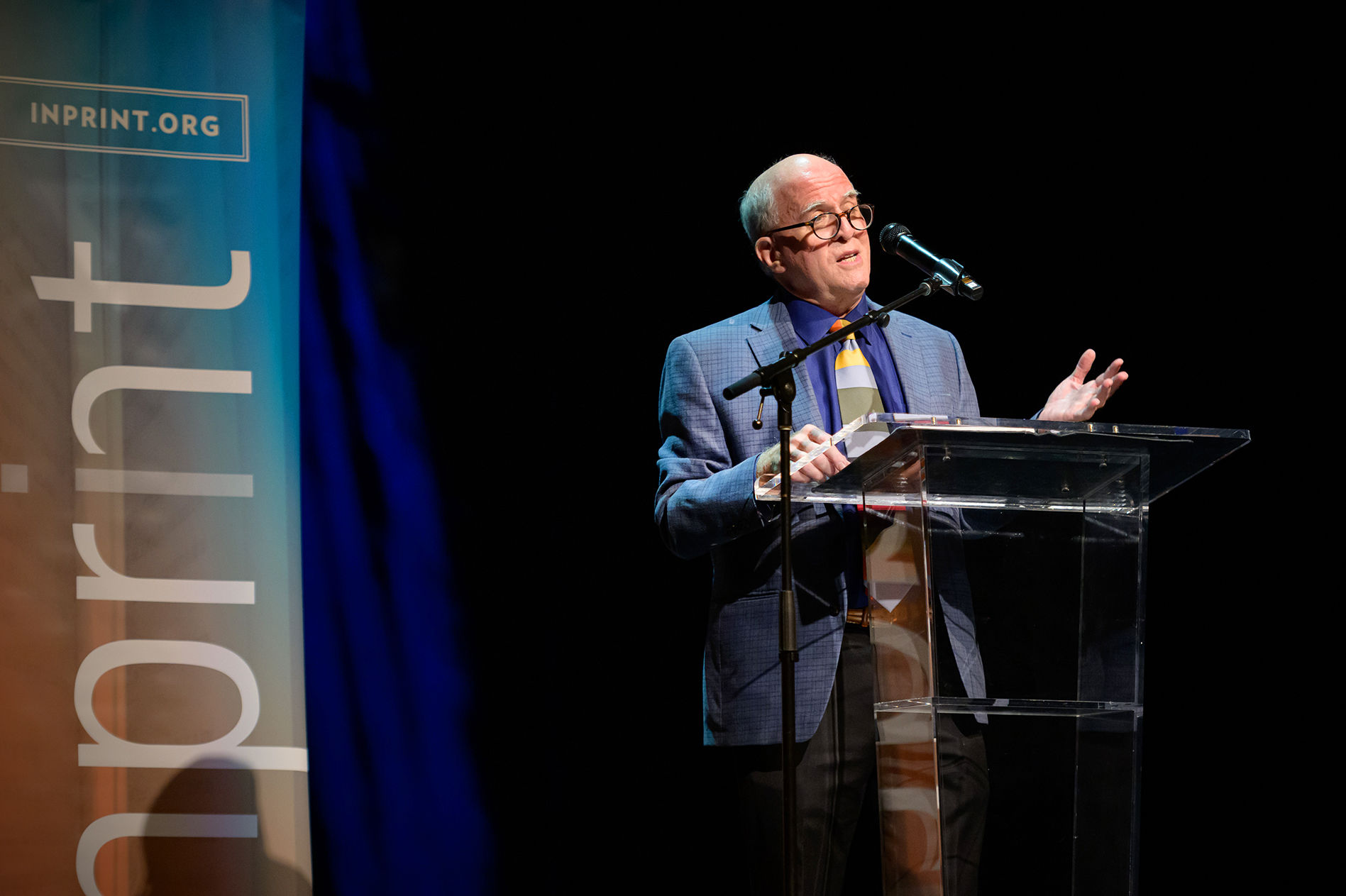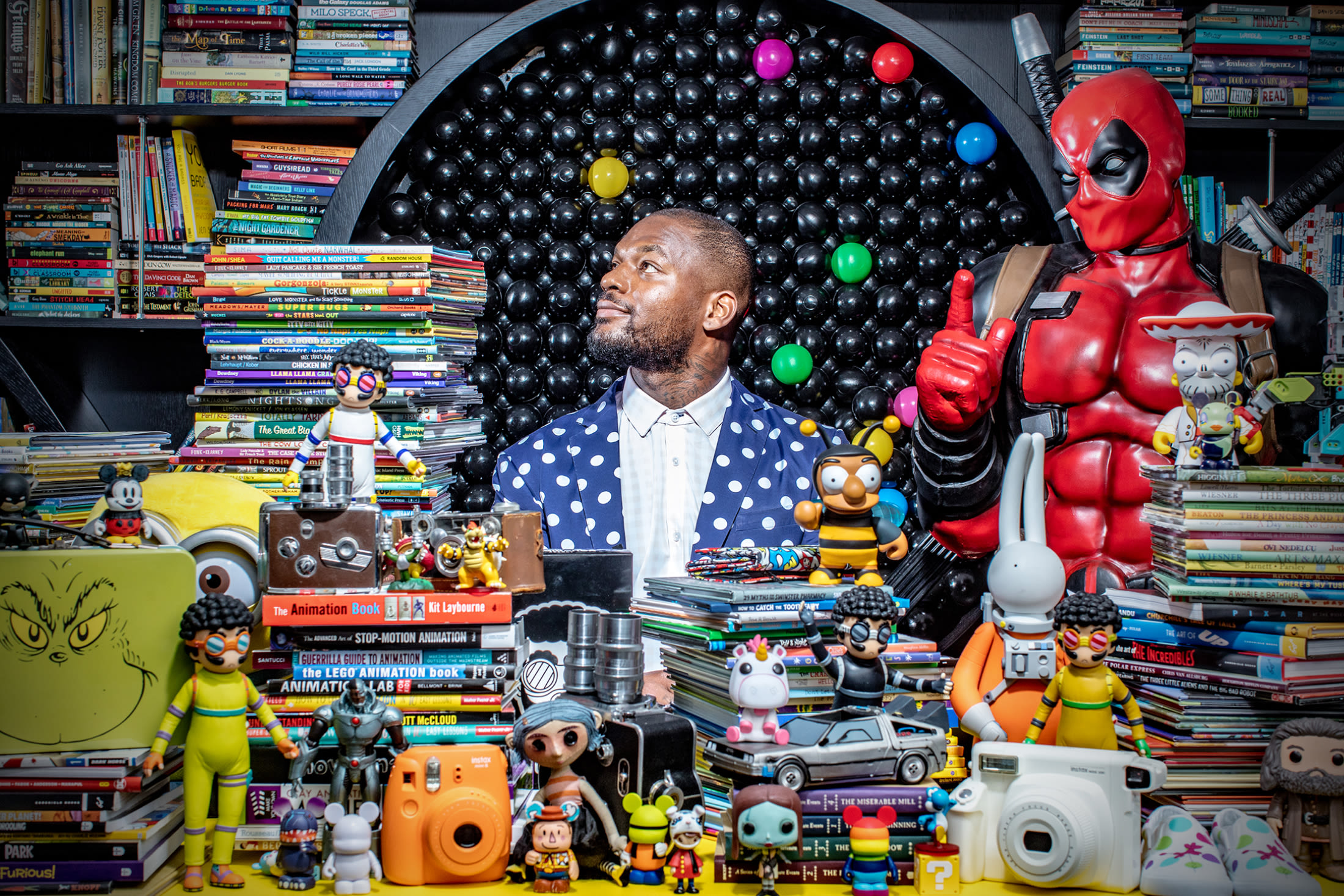Houston Is Basically the Reason Crazy Rich Asians Exists
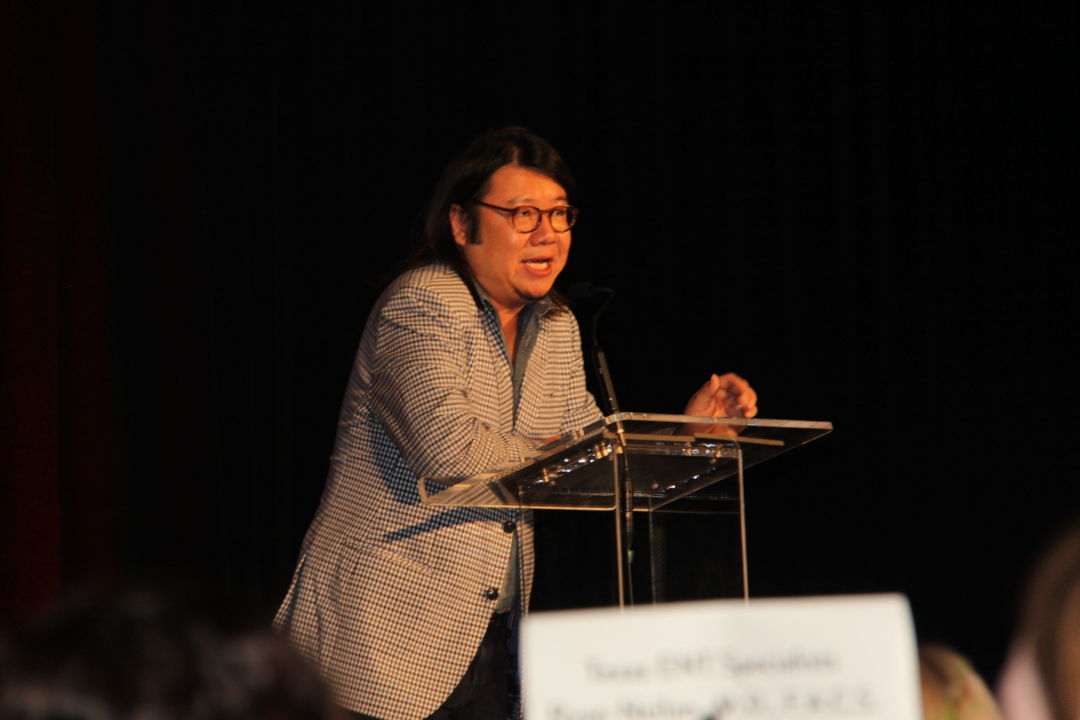
Kevin Kwan, the author of Crazy Rich Asians, speaking at The John Cooper School's 14th annual Signatures Author Series on Friday, November 30, at The Woodlands Waterway Marriott Hotel.
Without Houston, Crazy Rich Asians would not exist.
The bestselling novel and hit movie was inspired by author Kevin Kwan’s childhood in Singapore. But it was his adolescence and early adulthood spent in Clear Lake that shaped him into the “the writer that I am today,” Kwan said during his Friday visit to The Woodlands as part of the John Cooper School’s 14th annual Signatures Author Series.
“Houston truly nurtured me,” he added. “It welcomed me, and it was a great place to have an all-American high school upbringing.”
Kwan and his family moved to Clear Lake when he was 11 years old. He had no clue what was going on at the time.
“One day in 1985, a relative of ours who lived in Houston came to visit us in Singapore and came to my dad with a business proposal,” Kwan said. “I remember hearing them saying one word through the door. I would hear the word ‘French fries.’"
They actually said “franchise”—a Marble Slab Creamery franchise, to be exact, for which his father would move his family to America a month later.
Despite his lack of academic success at Clear Lake High School, a creative writing assignment his senior year of high school sparked Kwan’s love of telling stories. He wrote about Marilyn Monroe, and his teacher loved his essay so much she read it to the whole class. At San Jacinto College—“Harvard on the highway,” he joked—he “transformed [himself] into someone who loved to learn and loved school,” eventually transferring to and graduating from UH Clear Lake before moving to New York City.
Houston re-entered Kwan’s life when his father was diagnosed with cancer. Kwan moved back temporarily, driving his father from Clear Lake to his radiation appointments every day at MD Anderson. During those drives, Kwan and his father began to reminisce about their respective childhoods in Singapore.
“He was born in 1932, when Singapore was still a British colony, and he had watched it transform from this small, lazy island into the powerhouse that it is today,” Kwan said. “As my father and I would reminisce, I really began to remember more of my childhood, and all these memories really began to take shape.”
Kwan’s father passed away 16 months after being diagnosed. In the midst of Kwan’s grief, he decided to commit to writing his novel, based off the memories they shared.
Three years later, Crazy Rich Asians was on shelves.
“I didn't intend for [Crazy Rich Asians] to be published,” he said. “I wrote it for myself; it was kind of a personal project. I just thought, ‘Who's going to be interested in this strange little story?’”
Luckily, Kwan was wrong. What followed: Two more books, China Rich Girlfriend and Rich People Problems, and the Crazy Rich Asians movie, which earned $238 million at the worldwide box office and became an overnight sensation, lauded for its all-Asian cast (the first movie with an all-Asian cast since The Joy Luck Club came out in 1993), and the first American romantic comedy with Asian lead characters. A sequel is already in the works.
Nowadays, Kwan is producing two TV shows: one, a drama series for STX Entertainment; the other, a CBS sitcom called Emperor of Malibu. He’s done, for now, writing about “crazy rich Asians,” but he’s still interested in telling diverse stories.
And he credits his success to growing up in Houston.
“I am so grateful that my parents decided to move me here,” he said.
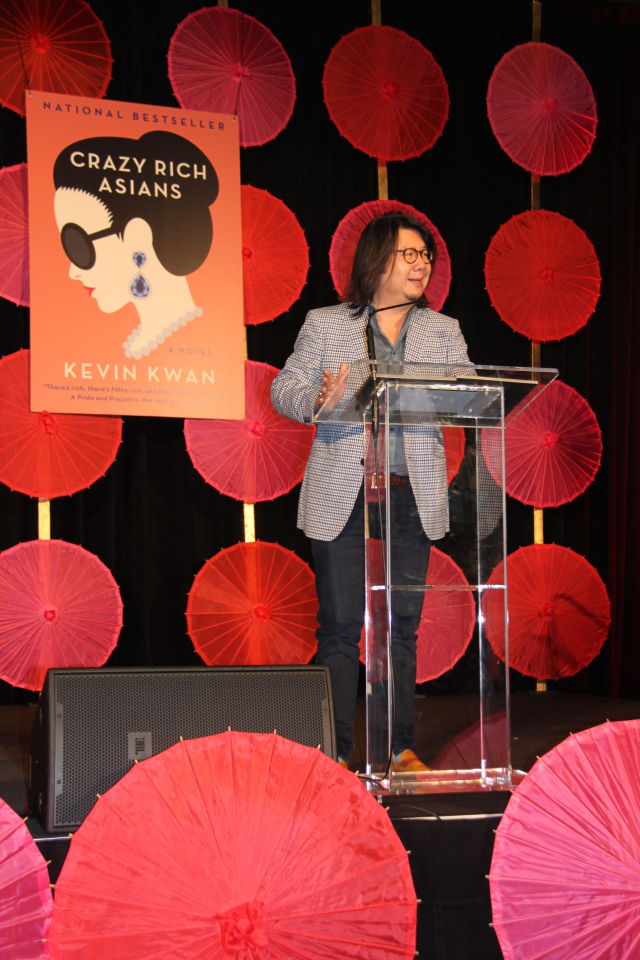
On his childhood in Singapore:
“I used to say that it was a normal childhood, but really looking back now, it really wasn't a normal childhood. I was part of this bicycling gang with all the other kids. We would get on our bikes and run around and terrorize dogs and steal fruit from neighbors and things like that. And we'd get up to all sorts of no-good as neighborhood buddies.
"But then we'd go home, and one neighborhood buddy was given a $40,000 grand piano for her birthday. Another neighbor had two matching white Lamborghinis. He was too young to drive them—I think his older brother had them. And yet another neighbor, his mother was this beautiful socialite from India, and she was so impeccably dressed she would have her saris flown back to Delhi to be cleaned on a monthly basis. It really wasn't that normal of a world.”
On his stories turning into a romantic comedy:
“When I first sat down to write, I had this idea that I was going to write this very dark, very dramatic, kind of exposé. It was going to be a very angry book about this world filled with hypocrisy, people that really have too much money, the global income inequality in this world. Somehow, in the middle of that, this kind of comedy emerged. It's funny what happens in the creative writing process, you just start writing, and these voices speak to you and these characters just pop up and say what they want to say. I ended up with something that was very different than my original intention.”
On his novels’ footnotes:
“It was always part of what I wanted to do. I knew that there were so many things I wanted to explain and explore that I didn't want to do in the story because it would just take you [out of it]. I felt like it would be a fun device. I was very much inspired by Junot Diaz, who wrote The Brief Wondrous Life of Oscar Wao, and his use of footnotes in that. I was like, I really want to do that too and really have the footnotes almost be their own book in a way.
"People think it's written in my voice. It's not. The author of the footnotes really is Oliver, the snarky cousin. In the first draft of my novel, the footnotes were just really dry. They were like real scientific footnotes almost. And my brilliant editor said, ‘Why not give them more personality?’ So I went back in and rewrote every one of them with a character's voice in mind. I made them fun and nasty and sarcastic, and I think to me it really helped the book to give it that extra twist.”
On what Houston was like when he moved here in 1985:
“Kathy Whitmire was mayor. Marvin Zindler was getting his second facelift. And the city was promising the construction of I-45 would be done ‘within a year.’”
On his time at Clear Lake High School:
“I was kind of the class clown and gossip king, and for four years my entire high school existence basically consisted of passing notes around my classes. I had so much fun in high school passing notes that I graduated at the very bottom of my class with a 2.54 GPA, and I didn't even take the SATs. I skipped them because I think that day I had to go camping out for Madonna tickets.”
On seeing his book on the big screen:
“It's been surreal. It really has been. As an author, that's the dream: to see your book turned into a movie. I never even dreamed of [the book] being turned into a movie, quite frankly. I didn't think my books would ever get published.
"I really think [the movie] kept the spirit of the book. They changed a lot of plot lines, of course, and they really streamlined the number of people involved, but I really loved what they did and I thought it was a beautiful adaptation.”
